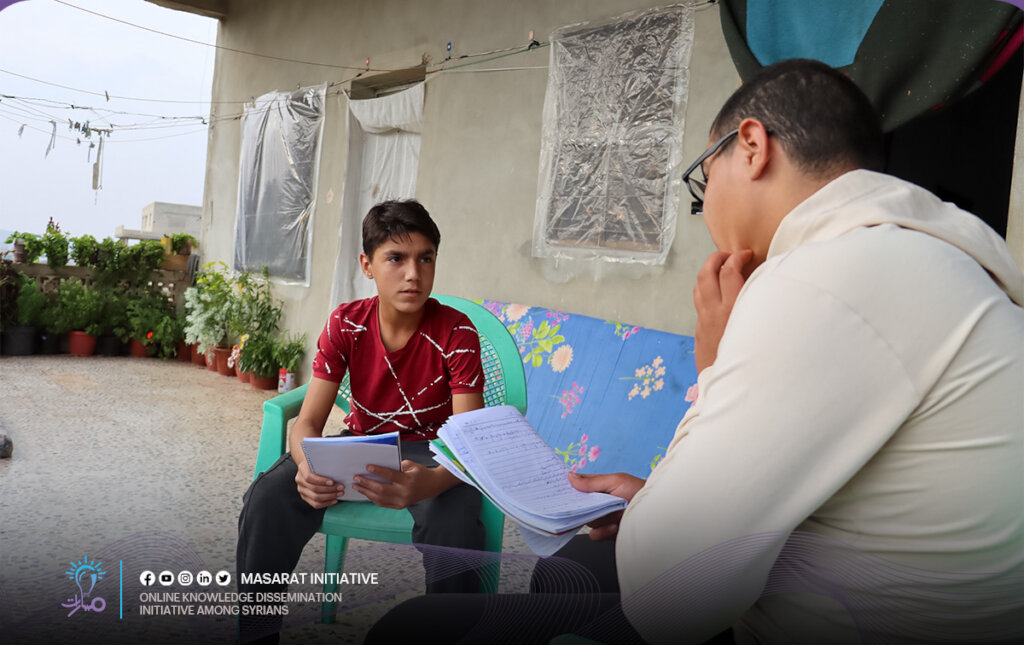Zakat, one of the most significant Islamic religious observances, is considered a pure obligation for the sake of Allah. It is intended as a sincere charity from the giver, extracting the best and most beneficial of what one owns in wealth, seeking His satisfaction.
The categories entitled to Zakat are numerous, including orphans. So, what is the ruling on sponsoring an orphan from Zakat funds? Is it permissible to allocate Zakat for the care of poor orphans? Finally, we will answer some of the most common questions related to sponsoring an orphan in Islam from Zakat funds.
The Ruling on Sponsoring an Orphan from Zakat Funds
Allah says: “Charities are for the poor and the needy, and those employed to administer them, and those whose hearts are to be reconciled, and to free the captives and the debtors, and for the cause of Allah, and for the wayfarer; a duty imposed by Allah. Allah is All-Knowing, Wise.” (Tawbah: 60)
Explaining this verse, the categories entitled to Zakat and charity are:
- The poor and needy who suffer from the hardships of life.
- “Those employed to administer it” refers to those who collect Zakat and charity funds.
- “Those whose hearts are to be reconciled” are newly converted Muslims, to soften their hearts towards adherence to divine commands.
- “To free the captives” refers to freeing Muslim slaves or prisoners.
- “The debtors” are those in debt and unable to repay it.
- “For the cause of Allah” includes those working on earth to raise the word of Allah, whether scholars or warriors.
- “The wayfarer” is the stranded traveler given enough to return home.
If the orphan falls within these Quranic categories, then Zakat can be given to them. However, if not, they are not entitled to it. An orphan might have sufficient wealth and not need charity or Zakat.
Sheikh Ibn Uthaymeen said: “Poor orphans are among those entitled to Zakat. If Zakat is given to their guardians, it is valid, provided they are trusted with it, to cover their needs and buy what they require,” emphasizing the condition of poverty, not just the status of being an orphan.

Is It Permissible to Spend Zakat on Sponsoring a Poor Orphan?
Zakat is wealth that purifies the soul from miserliness and stinginess. Thus, Allah has set rules for its allocation, stating, “Charities are for the poor,” the first category mentioned by Allah among those entitled to Zakat and charity funds. If the orphan is poor, it is permissible to give Zakat for their sponsorship.
From Sheikh Ibn Uthaymeen’s fatwa: “It’s important to know that Zakat is not for orphans, but for the poor, the needy, and the rest of the categories. An orphan could be wealthy, inheriting sufficient wealth from their father.”
Is Sponsoring an Orphan Considered Zakat?
The Prophet Muhammad said: “I and the sponsor of an orphan, whether his or others’, will be in Paradise like this,” indicating with his index and middle finger.
The merit of sponsoring an orphan in Islam is immense. If the orphan is poor with no wealth, it is permissible to give Zakat to them, considering it as sponsorship with the intention set at the time of payment, following the Prophet’s saying, “Actions are but by intentions..”

Masarat for Education and Sustainable Development in Syria
It’s noteworthy that the Masarat initiative has been and continues to be a primary supporter of orphan children’s education facing harsh living conditions.
Masarat’s programs aim to provide free education opportunities for about 2,000 orphan students to date. Your Zakat donations support these orphans materially and morally to improve their future.
In conclusion, sponsoring an orphan is not just a donation; it’s achieving social justice and humanitarian care. It’s crucial to raise awareness about the importance of paying Zakat for orphan sponsorship and its role in building a more compassionate and united society.
Frequently Asked Questions About Sponsoring an Orphan in Islam
Can those with children sponsor an orphan?
Numerous Quranic verses emphasize the importance of kindness to orphans. The Prophet Muhammad said, “I and the sponsor of an orphan will be in Paradise like this,” indicating closeness with his fingers, suggesting that even those with children can sponsor an orphan, provided they adhere to conditions such as kindness, fairness, and not causing harm.
Does sponsoring an orphan differ from adoption?
Yes, they are entirely different. It’s crucial to note that adoption is prohibited in Islam, but sponsoring an orphan carries great reward and merit from Allah.
Is there a reward for wishing to sponsor an orphan but being unable to do so?
The Prophet Muhammad said, “Actions are but by intentions..” Al-Nawawi commented, “Sharing in obedience equates to sharing in reward.” Thus, a sincere wish or intention to sponsor an orphan carries reward, but actively participating in their care or providing basic life necessities grants even greater reward, according to Islamic belief.
Does sponsoring an orphan count as jihad?
Ibn Battal in his explanation of Sahih Bukhari mentioned, “Those unable to participate in jihad for Allah’s cause, night prayers, or fasting should adhere to this hadith, striving for widows and the needy to be grouped with those who strive in Allah’s cause without moving or spending.” Therefore, striving to sponsor an orphan and showing them kindness is considered a significant and rewarding act, akin to jihad, prayer, and fasting.
Is it permissible to sponsor an orphan girl in the house?
It’s important to note that sponsorship doesn’t require living in the same house. However, if the orphan girl reaches puberty, she should be treated as a non-relative, except if she was breastfed by the same mother, applying the rules of fosterage. Otherwise, it’s prohibited to be alone with her, and she must wear the hijab in the presence of non-relatives, adhering to Islamic guidelines.




